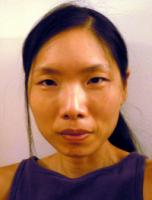Koay, Pei P. | USA

Pei P. Koay was the Lingnan Foundation Teaching Scholar in 2004-5 in Hong Kong. She completed her doctorate in Science and Technology Studies, tracking in the area of Politics and Policy of Science and Technology, at Virginia Polytechnic University in 2003 and received her M.A. in the History and Philosophy of Science and Technology from the University of Toronto where she focused on the history of modern medicine.
Her research interests are in the areas of representational acts of the biosciences, identity politics and the politics of the body and information, global(izing) science, and with the uses of case studies and qualitative comparative methods for theorizing in science studies. She has focused primarily on cultural, political, and social aspects of new medical and communicational technologies. Her recent research has turned to issues of race, nationalism, and aspects of human genomics. Other research projects concern university and public education of science, technology, and globalization.
She has taught and designed courses at universities in New York, Virginia, and Hong Kong in the areas of science and technology studies, political science, and sociology exploring ways to integrate the tools of interdisciplinary studies into her teaching. She has also worked on public forums for explor.ing science/society interactions as well as in science journalism and publishing.
Project at IAS-STS: (Re)presenting racial politics through new biomedical technosciences
Paraphrasing the sociologist of race, Howard Winant, there is a supposed replacement of the category ‘race’ by claimed objective categories of ethnicity, nationality, or class. However, as he argues, there remains a ‘continuing significance and changing meaning of race’ today that must be understood. It may be surprising that despite the many popular science stories about the social construction of race today, the continued significance of ‘race,’ and even re-construction of biological race, is true no less in the new life sciences.
My current research confronts race, ethnicity, and nationality in the genetic discourses today in order to explore the significances and consider its re-constructions, and meaning(s). By taking several case studies of human genomic population database projects – both public and private – in our world today, I will examine the public and expert discourses around them and locate these within the current academic literature in the social sciences as well as larger political discourses. I will especially highlight states’ efforts to promote genomics within their respective nations to larger audiences.
